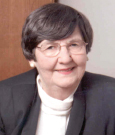ASCO has taken the field of psychosocial oncology a step forward in the right direction by providing guidelines for oncologists to direct care of the two most common emotional symptoms that patients experience: anxiety and depression.1 It is fair to say that all patients experience these symptoms—as well as their families—somewhere along the roller coaster ride of cancer. Anxiety is probably the more ubiquitous, coming in all levels of severity; depression occurs most commonly with sadness, diminished pleasure and zest for living, though it only rarely reaches the level of major or severe depression.
The important point of the guidelines is that they take away the guesswork of asking oneself, “is this patient having serious trouble”—by recommending that all patients receive an assessment routinely for both anxiety and depression, initially and at particularly vulnerable periods in the illness: around diagnosis, awaiting a decision about treatment, managing troublesome side effects either during treatment or as a survivor, and the transition from curative to palliative care. I was honored to serve on the ASCO panel that modified the Pan-Canadian Practice Guideline on Screening, Assessment, and Care of Psychosocial Distress (Depression, Anxiety) in Adults With Cancer,2 which have worked so well in Canada.
The Next Step
The tools for screening for both anxiety and depression are simple, short, and can be applied rapidly by office staff. However, the screening tool is simply a device to red flag the patient with distress. This must be followed by a conversation in which the oncologist, nurse, or social worker listens carefully to the patient’s problem and then determines the appropriate referral. Often this might mean receiving more support by the primary team, but it could also require referral to a social worker, mental health resource, or at times, a chaplain.
There is no substitute for the personal interaction as the “human” and critical second step. Screening does nothing more than identifying the vulnerable. It is up to the astute and caring staff to take the second step that assures patients that the care they receive is based on genuine concern for them as individuals. The secret to the care of the patient is “caring for the patient,” written by Peabody in 1927 in JAMA3 when he deplored that medical students were getting too much science and not enough about “caring” for patients. How much the treatments change, but how little the “human” issues change. ■
Disclosure: Dr. Holland reported no potential conflict of interest.
References
1. Andersen BL, DeRubeis RJ, Berman BS, et al: Screening, assessment, and care of anxiety and depressive symptoms in adults with cancer: An American Society of Clinical Oncology Guideline Adaptation. J Clin Oncol. April 14, 2014 (early release online).
2. Howell D, Keller-Olaman S, Oliver T, et al: A pan-Canadian practice guideline: Screening, assessment and care of psychosocial distress (depression, anxiety) in adults with cancer. Canadian Partnership Against Cancer (Cancer Journey Action Group) and the Canadian Association of Psychosocial Oncology, 2010. Available at www.capo.ca.
3. Peabody FW: The Care of the Patient. JAMA 88(12):877-882, 1927.
Jimmie C. Holland, MD, is the Wayne E. Chapman Chair in Psychiatric Oncology and Attending Psychiatrist in the Department of Psychiatry & Behavioral Sciences at Memorial Sloan-Kettering Cancer Center in New York. Dr. Holland was a member of the ASCO Panel that adapted the guidelines for psychosocial distress.


